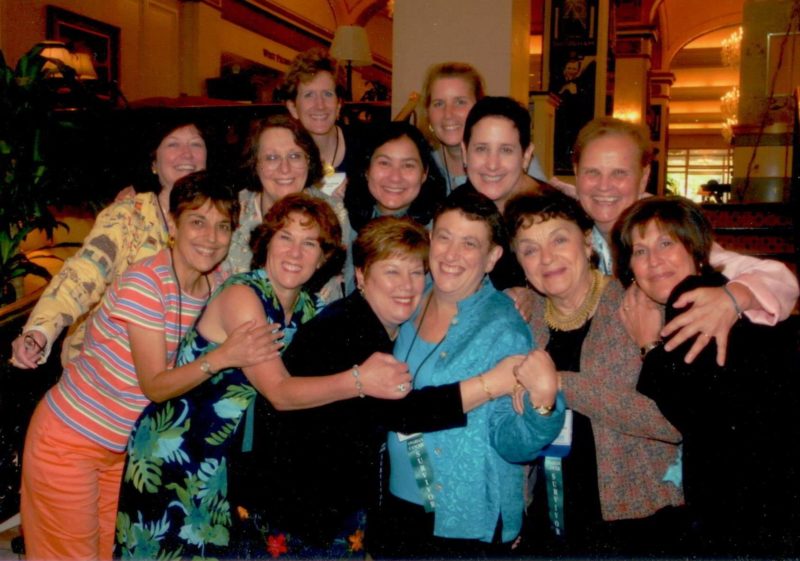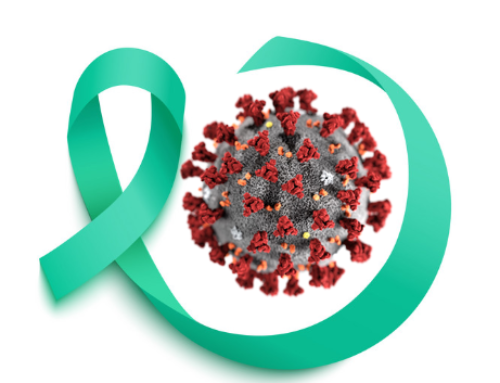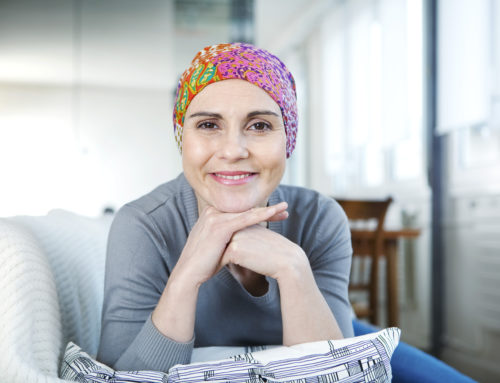LEARNING FROM LONG-TERM SURVIVORS
What do you do?
What do you eat?
Do you take supplements?
These were the questions that I asked every woman who had undergone treatment for ovarian cancer that I met those first few years after my own diagnosis. I was desperate to learn and do anything—absolutely anything—that would help me survive. I was confused because some survivors I met had made drastic changes to their diets—cutting out sugar, red meat, dairy, and some going completely vegan. However, I met others who did not—they ate their steaks, ice cream, wine, and chocolate—and they were doing great, too. I was searching for the key to a long life after cancer, but was frustrated to see that there didn’t seem to be that one special ingredient to guarantee a long life. Every time I ate or felt anxious, I was terrified that I might be fueling cancer. It was a confusing and exhausting time for me.
I’m so glad that other survivors encouraged me to attend Foundation for Women’s Cancer education courses and Ovarian Cancer Research Alliance national conferences. In addition to meeting survivors and advocates from all over the country who filled my heart with joy and laughter, I learned about the latest scientific discoveries directly from doctors involved in research and that there are many factors beyond nutrition involved in the treatment and survivorship of ovarian cancer. I found hope in research happening in clinical trials and laboratories. A new appreciation for evidence-based medicine compelled me to look beyond headlines about miracle cures and ask more questions regarding the strength of the evidence behind any claims.
Part of my journey from survivor to advocate included many, many discussions in support groups seeking reasons that explained why some women did so well, while others—who received the exact same treatments—did not. While at a survivor conference, I learned that ovarian cancer was selected as one of the first three cancers to be molecularly profiled for The Cancer Genome Atlas (TCGA). The TCGA data published in 2011 revealed that ovarian cancer is extremely complicated and that each person’s cancer is different, not just one disease, and that was only as it related to one subtype: serous cancers! It started to make sense to me that this kind of variation in the genes within a tumor could explain the variability for women, their response to treatments and their survival. The knowledge that ovarian cancer is so tricky made many survivors even more eager to learn what could be done to increase our own chances of long-term survival.
As an advocate within the ovarian cancer community I am excited to see the surge in interest in long-term survivorship research. Every year, cancer advocates ask the US Congress to fund important Congressionally Directed Medical Research Programs (CDMRP), including the Ovarian Cancer Research Program (OCRP). With this important funding from Congress, the OCRP was able to offer the Outcomes Consortium Development Award for researchers to organize and compete for a larger Outcomes Consortium Award. This was aimed at multi-disciplinary research to learn more from long-term survivors, to seek to identify and understand predictors of disease outcomes. More importantly, the CDMRP required the inclusion of advocates and survivors (also known as “consumers”) as part of the grant—an important step in understanding that we are allies in research and most invested in these kinds of discoveries. Indeed, many survivors and advocates collaborated on these research teams and even more long-term survivors gave their time to answer questions and/or contributed their tumor samples to help with the discovery of important insights.
Although this line of study does not specifically focus on nutrition, very important genomic information and directions for future study have been uncovered. Some of the work of the Outcomes Consortium Development and Outcomes Consortium Awardees has been published in medical journals and presented at scientific meetings. More about their important work can be read through the links below.
- The Genomic, Epigenomic, and Psychosocial Characteristics of Long-Term Survivors of Ovarian Cancer group was led by Michael Birrer. Mary “Dicey” Scroggins was the lead survivor advocate.
- The Multidisciplinary Ovarian Cancer Outcomes Group was led by Malcolm Pike. Jean Richardson was the lead survivor advocate.
- The Consortium to Study Long-Term Survivors of Ovarian Cancer was led by Dr Anil Sood. Susan Leighton was the lead survivor advocate.
And more research and analysis is ongoing!
Today I am a 15-year survivor of ovarian cancer. I know how lucky I am to say that, and I am so grateful to be here and able to enjoy an unexpectedly long third remission. Now I am approached by women with newly diagnosed ovarian cancer, and sadly, they ask me those very same questions I asked so long ago—proof there is still so much work to do! I wish I could give them the kind of answer I was looking for when I was newly diagnosed. I can only tell them my truth—that I am not doing anything special outside of following the recommendations of my medical team to increase physical activity, lower stress and follow the American Cancer Society’s nutrition guidelines (which I do about 80% of the time). One great resource for patients in treatment and beyond is the American Institute for Cancer Research’s Heal Well Guide. I also add that I’m watching for more research findings coming out long-term survivor studies, as well as nutrition and exercise studies and cancer research, in general, for information that will help us all live longer and better.
Annie Ellis
Evidence-based medicine = HOPE
Globe-athon is proud to partner with Smart Patients, an online community where patients learn from each other about their cancer journeys. On Smart Patients, you can discuss issues raised in this blog post and beyond. Join here: https://www.





